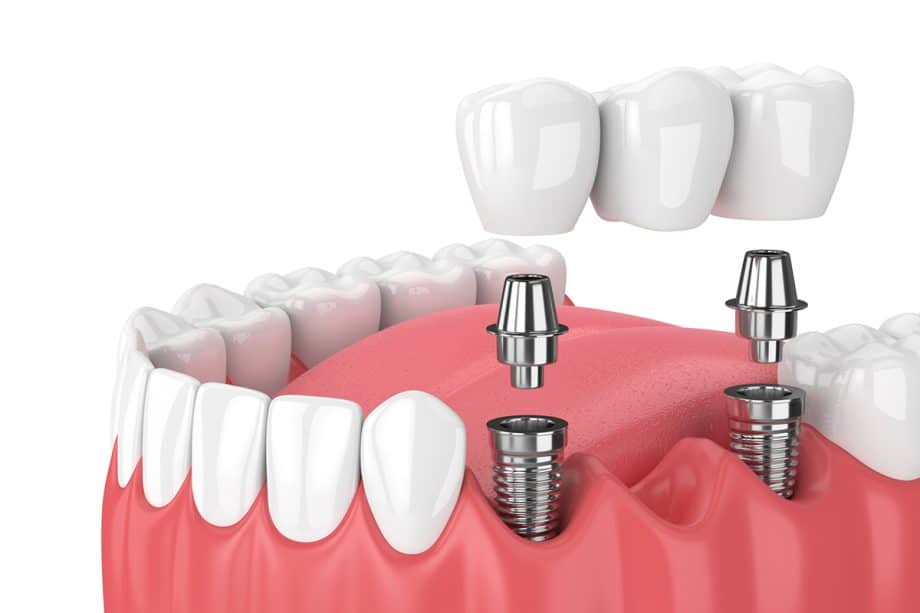Dental bridges are ideal for replacing missing teeth, restoring bite function, improving your smile, and boosting your self-confidence. There are several types of bridges, and your dentist can recommend the best for your mouth. If you’re considering a bridge for your missing tooth or teeth, you might wonder how long a bridge can take to settle.
What is a Dental Bridge?
A dental bridge replaces one or more missing teeth in the mouth. They are a popular fixed, long-lasting restoration option. Bridges look and function comfortably, as they are designed to be like your natural teeth. Your dentist will customize your bridge to fit your mouth.
With proper oral hygiene and regular professional dental cleanings, dental bridges can last more than 10 years. Some types of bridges, such as implant-supported ones, will last much longer than that. In fact, implant-supported bridges have the potential to last a lifetime.
How Long Will It Take for a Dental Bridge to Settle?
The dental bridge settling process typically takes two to three weeks. The bridge slowly adjusts to the contours of the mouth and the biting surfaces of the teeth. Your dentist will provide specific instructions on caring for your bridge during the settling period.
How long it takes for a dental bridge to settle will vary depending on the type of bridge and the materials used. Metal bridges usually settle faster than others, while porcelain and ceramic bridges can take a little bit longer. You should anticipate the bridge taking a few weeks to settle into place.
What to Expect After Receiving Your Permanent Dental Bridge
Once your bridge is in place, you may experience some soreness, sensitivity, and a difference in how your bite feels. The good news is that this discomfort will dissipate within the next few days. You can take over-the-counter analgesics; if the discomfort is severe, your dentist can prescribe pain medication. Ice packs can also help with pain, and fluoride toothpaste can help decrease sensitivity.
During the first few days, avoid anything that might cause additional discomfort or delay your healing. For example, avoid foods or candy that are hot, spicy, acidic, crunchy, or hard. Proper oral care is imperative right now to help prevent infection under the bridge. If this happens, you may experience tooth decay. Sugary and acidic foods can also increase the risk of tooth decay.
How Long Until Your Bridge Feels Normal?
A dental bridge takes some getting used to since it is new. Most dental patients have fully adjusted to their bridge within about two weeks. At that time, the fixed bridge should feel natural and comfortable, like your own teeth. If it still feels uncomfortable or loose, it’s possible that it needs re-adjusted. If it doesn’t seem like it fits right, let your dentist know right away. Bridges that don’t fit properly may trap bacteria and plaque, putting the patient at risk for gum disease and tooth decay.
Your bridge may also feel uncomfortable if it’s not maintained correctly. You will need to brush and floss regularly and schedule routine dental checkups. You should also avoid damaging chewing habits, such as chewing on hard food items, pens, or fingernails.
Are You Ready to Improve Your Smile?
While bridges can take a couple weeks to settle, the result is well worth the wait. You can learn more about bridges and if one is a good option for your dental situation by speaking to one of our dental professionals. Contact Glassman Dental Care today to schedule a consultation or request an appointment online.

